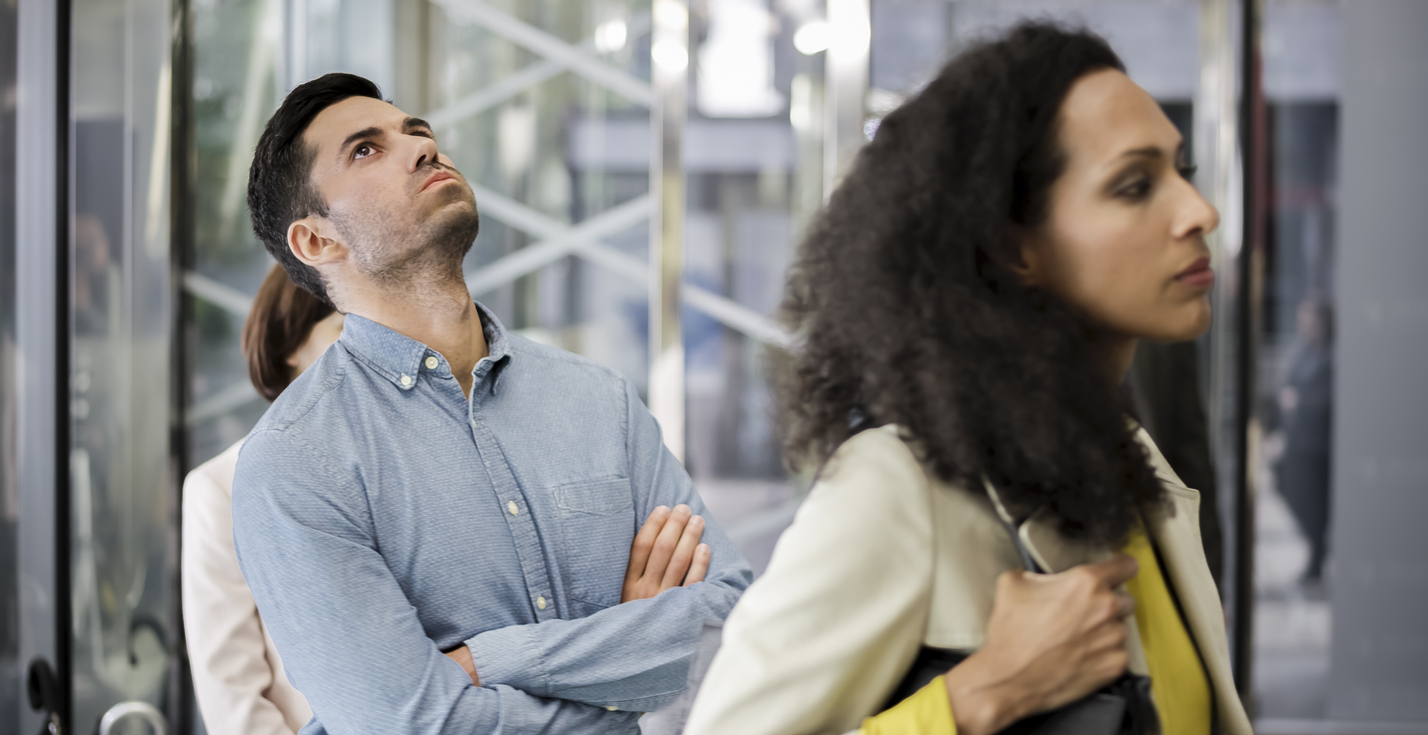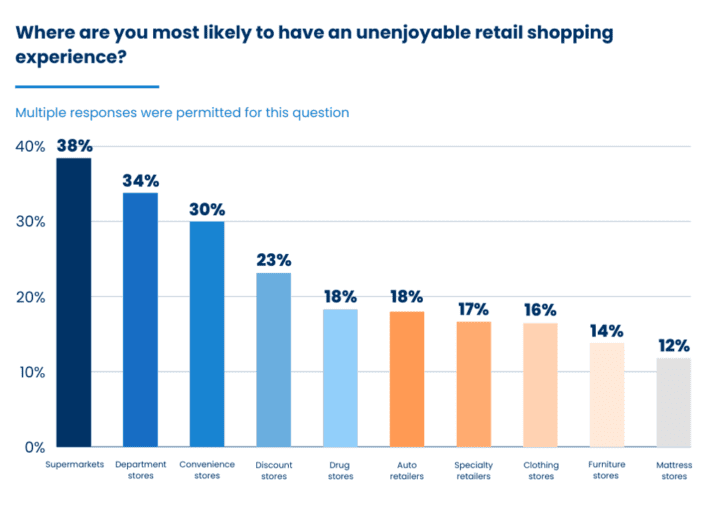 Even before COVID, people were dissatisfied with the experience of buying things in-store: a 2019 survey of shoppers found that 80% said they feel they’re not receiving a personalized shopping experience. And while people are increasingly heading back into brick and mortar businesses now that the pandemic is finally over, they are even less happy with what they’re finding.
Even before COVID, people were dissatisfied with the experience of buying things in-store: a 2019 survey of shoppers found that 80% said they feel they’re not receiving a personalized shopping experience. And while people are increasingly heading back into brick and mortar businesses now that the pandemic is finally over, they are even less happy with what they’re finding.
A new survey from mobile communication platform Theatro found that, of the 600 people were surveyed in January, 41% said their experiences are less enjoyable today than before COVID, while 21% said they’re more enjoyable, and 38% said they’re about the same.
The types of stores where consumer have had the biggest issues are supermarkets, with 38% saying they were likely to have an unenjoyable experience there, followed by 34% who said department stores, and 30% who cited convenience stores.
On the other end, the stores where they were least likely to have a bad experience were clothing stores, with 16%, followed by 14% who said furniture stores, and just 12% who said they expected to have a bad experience at a mattress store. The biggest frustration that consumers feel when shopping in a physical store are long lines and crowds (which they obviously don’t have to deal with online); this was, by a very wide margin, the largest problem cited. High prices came in second place with 39%, while 32% said they were frustrated by limited product availability.
The biggest frustration that consumers feel when shopping in a physical store are long lines and crowds (which they obviously don’t have to deal with online); this was, by a very wide margin, the largest problem cited. High prices came in second place with 39%, while 32% said they were frustrated by limited product availability.
Staffing issues
Among those who said their experiences are less enjoyable now than before COVID, the majority put the onus on staffing issues: 60% said that it was because more stores had inadequate staffing levels compared to 2019, compared to 24% who said staffing was better, while 64% said that more stores have “poorly trained or prepared staff” than in 2019; only 18% said fewer stores had this problem.
A small, but significant, percentage also cited staff problems when it came to their biggest frustrations: 29% said they it was “difficult or rude staff,” and 24% said it was “unknowledgeable or unhelpful staff.”
When the survey asked, “What are the most common problems you encounter with the employees you interact with at physical retail stores?,” the top answers were “lack of helpfulness or willingness to assist,” and “rude or unprofessional behavior,” both with 41%, while 35% said it was “lack of product knowledge or expertise,” and 33% said it was “lack of knowledge of where products are located in the store or whether they are in stock.”
These issues that consumers have with employees should not be taken lightly by their employers: 50% said they had stopped shopping at a store after having a bad experience with a staff member.
Despite all of these issues and frustrations, nearly everyone asked is now doing shopping in a physical store: over 90% said they are doing at least half of all their shopping in physical retail stores, while 37% said they do “most,” and 27% said they do “all,” of their shopping in-store.
The reasons for that are because they like being able to see and touch the product, which was cited by 76%, and 44% said they like the immediate gratification of taking the products they buy home with them.
Lower down on the list, 25% said they like the social aspect of shopping, 21% said they like being able to ask questions and get help with purchases from in-store employees, and 20% said that it’s easier to return items when you buy them at a physical store.
The news isn’t all rosy, however: people are doing less in-store shopping than they did pre-pandemic. While 39% said they shop less often, 24% who said they shop more often in a physical store.
“Consumers prefer physical retail for a lot of reasons, such as the ability to see and feel products before buying them, and the immediate gratification of taking a product home. But they’ve also become more accustomed to the advantages of e-commerce, such as avoiding long lines and having an almost infinite amount of product information at their fingertips. This makes them more impatient with the in-store experience,” Theatro CEO Chris Todd said in a statement.
“The survey suggests that retailers must respond to these heightened expectations or suffer the consequences of decreased shopper satisfaction and, ultimately, sales.”
(Image source: skiplino.com)

















